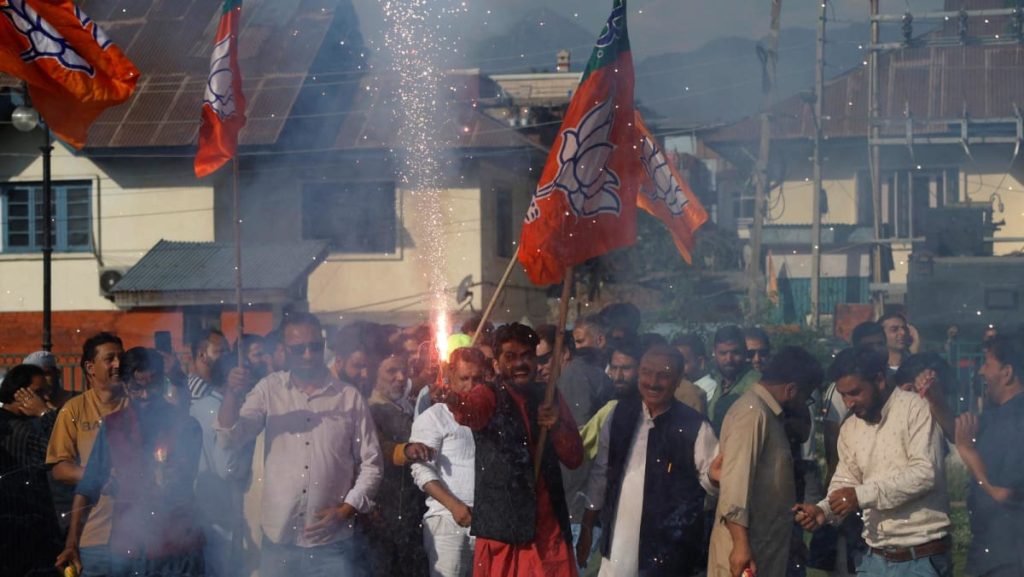Coalition negotiations are set to begin as the BJP lost its majority in the recent election, raising concerns about the stability of the next government. Top BJP leaders are set to discuss ministerial portfolios with their allies before Prime Minister Narendra Modi meets with President Droupadi Murmu to present his claim to form the next government. This marks a return to an era before 2014 when alliance partners would negotiate for positions and benefits in exchange for supporting coalition governments.
Despite the uncertainty caused by the BJP’s loss of the majority, senior BJP leader Shivraj Singh Chouhan expressed confidence that Modi’s new government would last its full five-year term and perform even better. However, a survey published recently indicated that issues such as lack of job opportunities, high inflation, and declining incomes had cost Modi votes in the election, despite his personal popularity. The survey also highlighted concerns about inflation, with 30 percent of voters expressing worry compared to 20 percent before the election.
Unemployment had been the main concern for 32 percent of respondents prior to the election, according to a survey conducted by Lokniti-CSDS post-election survey published by the Hindu newspaper. In addition to job opportunities, decreasing income and the government’s handling of corruption and fraud were also key concerns among voters. The survey results suggest that economic issues played a significant role in influencing voter decisions.
The upcoming coalition negotiations will be crucial in determining the composition and priorities of the next government. With the BJP no longer holding a majority on its own, the support of alliance partners will be essential in ensuring the stability and effectiveness of the government. Modi’s ability to navigate these negotiations and address the concerns raised by the survey will be critical in shaping the government’s agenda and policies. The outcome of the negotiations will also have implications for the BJP’s ability to deliver on its promises and maintain public trust.
As the BJP prepares for the coalition negotiations, it will need to strike a balance between accommodating the demands of its allies and maintaining its own policy objectives. The outcome of these negotiations will shape the government’s ability to address pressing issues such as job creation, inflation, and income growth. Additionally, the government’s response to concerns about corruption and fraud will be closely watched by the public and could impact its popularity and effectiveness in addressing these challenges.
Overall, the coalition negotiations mark a significant moment in India’s political landscape, with the BJP facing the challenge of building a stable and effective government despite losing its majority. The outcome of the negotiations and the government’s ability to address key issues such as job creation and inflation will be closely monitored by the public and could have far-reaching implications for the country’s economic and political future. As Modi prepares to present his claim to form the next government, the success of the negotiations and the government’s ability to address voters’ concerns will be crucial in determining its long-term viability and effectiveness.


